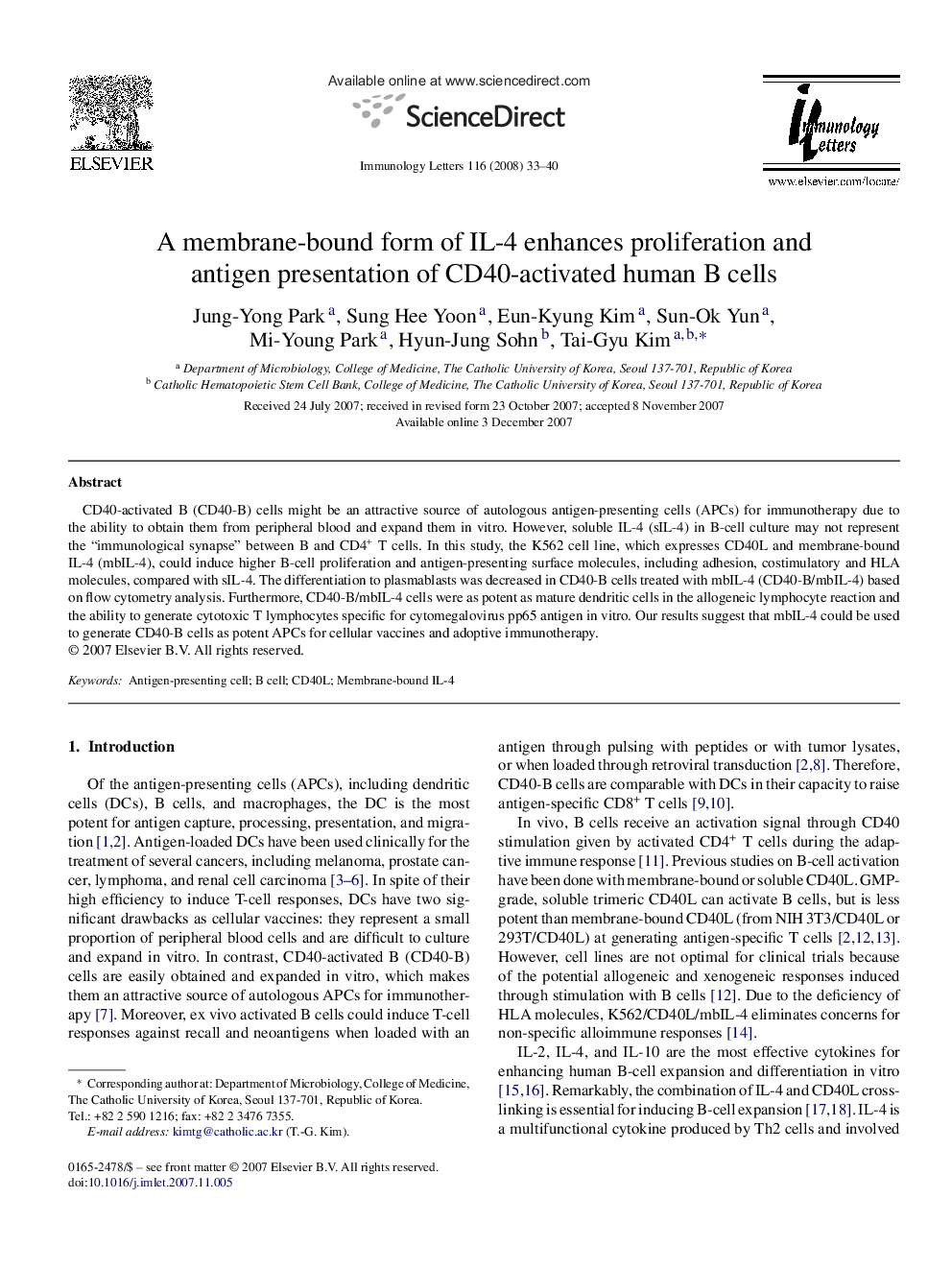| Article ID | Journal | Published Year | Pages | File Type |
|---|---|---|---|---|
| 3356250 | Immunology Letters | 2008 | 8 Pages |
CD40-activated B (CD40-B) cells might be an attractive source of autologous antigen-presenting cells (APCs) for immunotherapy due to the ability to obtain them from peripheral blood and expand them in vitro. However, soluble IL-4 (sIL-4) in B-cell culture may not represent the “immunological synapse” between B and CD4+ T cells. In this study, the K562 cell line, which expresses CD40L and membrane-bound IL-4 (mbIL-4), could induce higher B-cell proliferation and antigen-presenting surface molecules, including adhesion, costimulatory and HLA molecules, compared with sIL-4. The differentiation to plasmablasts was decreased in CD40-B cells treated with mbIL-4 (CD40-B/mbIL-4) based on flow cytometry analysis. Furthermore, CD40-B/mbIL-4 cells were as potent as mature dendritic cells in the allogeneic lymphocyte reaction and the ability to generate cytotoxic T lymphocytes specific for cytomegalovirus pp65 antigen in vitro. Our results suggest that mbIL-4 could be used to generate CD40-B cells as potent APCs for cellular vaccines and adoptive immunotherapy.
